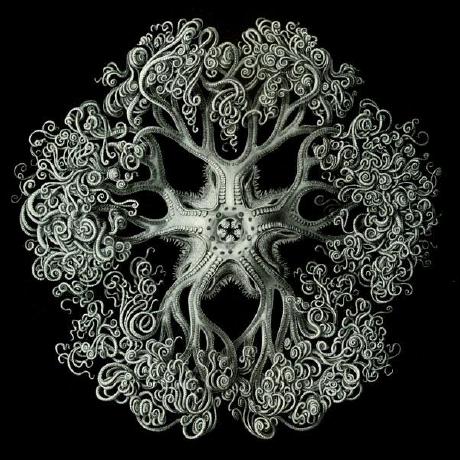WiFiManager NINA Lite Save Abandoned
Light-Weight WiFi/Credentials Manager for AVR Mega, Teensy, SAM DUE, SAMD, STM32, etc. boards running U-Blox WiFiNINA modules/shields. Powerful-yet-simple-to-use feature to enable adding dynamic custom parameters. Now using WiFiMulti_Generic library
WiFiManager_NINA_Lite (Light Weight Credentials / WiFi Manager for WiFiNINA modules/shields)
Table of Contents
- Important Notes
- Why do we need this WiFiManager_NINA_Lite library
- Changelog
- Prerequisites
- Installation
-
Packages' Patches
- 1. For Adafruit nRF52840 and nRF52832 boards
- 2. For Teensy boards
- 3. For Arduino SAM DUE boards
- 4. For Arduino SAMD boards
- 5. For Adafruit SAMD boards
- 6. For Seeeduino SAMD boards
- 7. For STM32 boards
- 8. For RP2040-based boards using Earle Philhower arduino-pico core
- 9. For Portenta_H7 boards using Arduino IDE in Linux
- 10. For RTL8720DN boards using AmebaD core
- 11. For SAMD21 and SAMD51 boards using ArduinoCore-fab-sam core
- 12. For Seeeduino RP2040 boards
- 13. For Seeeduino nRF52840 boards
- Libraries' Patches
- HOWTO Change pin definitions for WiFiNINA
- How It Works
-
How to use
- 1. Basic usage
- 2. Add custom parameters
- 3. Not using custom parameters
- 4. To open Config Portal
- 5. To use different AP WiFi Channel
- 6. To use different static AP IP from default
- 7. To use custom DHCP HostName
- 8. To use custom HTML Style
- 9. To use custom Head Elements
- 10. To use CORS Header
- 11. To use and input only one set of WiFi SSID and PWD
- 12. To enable auto-scan of WiFi networks for selection in Configuration Portal
- 13. To avoid blocking in loop when WiFi is lost
- 14. Not using Board_Name on Config_Portal
- Examples
- So, how it works?
- Important Notes
- How to use default Credentials and have them pre-loaded onto Config Portal
- How to add dynamic parameters from sketch
- Important Notes for using Dynamic Parameters' ids
- Example SAMD_WiFiNINA
-
Debug Terminal Output Samples
-
1. SAMD_WiFiNINA on Nano-33-IoT
- 1.1 Open Config Portal
- 1.2 Received data from Config Portal
- 1.3 Got valid Credential from Config Portal, then connected to WiFi
- 1.4 Lost a WiFi and autoconnect to another WiFi AP
- 1.5 Reopen Config Portal if can't connect to any of the 2 WiFi APs
- 1.6 DRD Not Detected
- 1.7 DRD detected and Config Portal is forcefully opened
- 2. RP2040_WiFiNINA_MQTT on MBED NANO_RP2040_CONNECT
-
1. SAMD_WiFiNINA on Nano-33-IoT
- Debug
- Troubleshooting
- Issues
- TO DO
- DONE
- Contributions and Thanks
- Contributing
- License
- Copyright
Important Notes
The LittleFS of the new Nano_RP2040_Connect board ( see New board ), using ISSI Flash chip, is currently not working with Arduino mbed_rp2040 core 2.4.1+. Please downgrade to Arduino mbed_rp2040 core 2.3.1
Check RP2040 Connect board has faulty components in newest purchase #318 for more information of when and how the issue will be fixed.
The old board ( see Old board ), using Adesto Flash chip, is currently working with Arduino mbed_rp2040 core 2.4.1+.
Why do we need this WiFiManager_NINA_Lite library
Features
If you have used the full-fledge WiFiManager such as :
and have to write complicated callback functions to save custom parameters in SPIFFS/LittleFS/EEPROM, you'd appreciate the simplicity of this Light-Weight Credentials / WiFiManager.
This library is a Light Weight Credentials / WiFi Manager for WiFiNINA (WiFiNINA, WINC1500/WiFi101, etc.) modules/shields, specially designed to support Teensy, SAM DUE, SAMD21 (Nano-33 IoT, Itsy-Bitsy M0, etc), SAMD51 (Itsy-Bitsy M4, Metro M4, Grand Central M4, Feather M4 Express, etc.), STM32F (F1, F2, F3, F4, F7, Nucleo-144, etc.), nRF52 (Adafruit NRF52840_FEATHER, NRF52832_FEATHER, NRF52840_FEATHER_SENSE, NRF52840_ITSYBITSY, NRF52840_CIRCUITPLAY, NRF52840_CLUE, NRF52840_METRO, NRF52840_PCA10056, PARTICLE_XENON, NINA_B302_ublox, NINA_B112_ublox, etc.), RP2040-based (Nano RP2040 Connect, RASPBERRY_PI_PICO, ADAFRUIT_FEATHER_RP2040 and GENERIC_RP2040), etc. boards running WiFiNINA modules/shields. with smaller memory (64+K bytes)
The AVR-family boards (UNO, Nano, etc.) are not supported as they don't have enough memory to run Config Portal WebServer.
This is a Credentials / WiFi Connection Manager, permitting the addition of custom parameters to be configured in Config Portal. The parameters then will be saved automatically, without the complicated callback functions to handle data saving / retrieving.
You can also specify DHCP HostName, static AP and STA IP. Use much less memory compared to full-fledge WiFiManager. Config Portal will be auto-adjusted to match the number of dynamic custom parameters. Credentials are saved in EEPROM, FlashStorage or DueFlashStorage.
The web configuration portal, served from the WiFiNINA modules/shields is operating as an access point (AP) with configurable static IP address or use default IP Address of 192.168.4.1
New recent features:
- MultiWiFi feature for configuring/auto(re)connecting WiFiNINA (WiFiNINA, WINC1500/WiFi101, etc.) shields to the available MultiWiFi APs at runtime.
- DoubleDetectDetector feature to force Config Portal when double reset is detected within predetermined time, default 10s.
- Powerful-yet-simple-to-use feature to enable adding dynamic custom parameters from sketch and input using the same Config Portal. Config Portal will be auto-adjusted to match the number of dynamic parameters.
- Optional default Credentials as well as Dynamic parameters to be optionally autoloaded into Config Portal to use or change instead of manually input.
- Dynamic custom parameters to be saved automatically in non-volatile memory, such as Teensy EEPROM, SAMD EEPROM-emulated FlashStorage_SAMD, STM32F/L/H/G/WB/MP1 EEPROM-emulated FlashStorage_STM32 or SAM DUE DueFlashStorage.
- Configurable Config Portal Title to be either BoardName or default undistinguishable names.
- Examples are redesigned to separate Credentials / Defines / Dynamic Params / Code so that you can change Credentials / Dynamic Params quickly for each device.
- Configurable Customs HTML Headers, including Customs Style, Customs Gead Elements, CORS Header.
- Scan WiFi networks for selection in Configuration Portal
WiFiMulti_Generic library usage
The usage the new WiFiMulti_Generic library to help connect to the best of multi-WiFi APs, with auto-checking / auto-reconnecting features when WiFi connection is lost.
Currently supported Boards
This WiFiManager_NINA_Lite library currently supports these following boards:
-
nRF52 boards, such as AdaFruit Feather nRF52832, nRF52840 Express, BlueFruit Sense, Itsy-Bitsy nRF52840 Express, Metro nRF52840 Express, NINA_B302_ublox, NINA_B112_ublox, etc.
-
SAMD21
- Arduino SAMD21: ZERO, MKRs, NANO_33_IOT, etc.
- Adafruit SAMD21 (M0): ItsyBitsy M0, Feather M0, Feather M0 Express, Metro M0 Express, Circuit Playground Express, Trinket M0, PIRkey, Hallowing M0, Crickit M0, etc.
- Seeeduino: LoRaWAN, Zero, Femto M0, XIAO M0, Wio GPS Board, etc.
- SAMD51
- Adafruit SAMD51 (M4): Metro M4, Grand Central M4, ItsyBitsy M4, Feather M4 Express, Trellis M4, Metro M4 AirLift Lite, MONSTER M4SK Express, Hallowing M4, etc.
- Seeeduino: Wio Terminal, Grove UI Wireless
- SAM DUE
- Teensy (4.1, 4.0, 3.6, 3.5, 3,2, 3.1, 3.0)
- STM32F/L/H/G/WB/MP1 boards (with 32+K Flash)
- Nucleo-144
- Nucleo-64
- Discovery
- Generic STM32F0, STM32F1, STM32F2, STM32F3, STM32F4, STM32F7 (with 64+K Flash): x8 and up
- STM32L0, STM32L1, STM32L4
- STM32G0, STM32G4
- STM32H7
- STM32WB
- STM32MP1
- LoRa boards
- 3-D printer boards
- Generic Flight Controllers
- Midatronics boards
-
RP2040-based boards, such as Nano RP2040 Connect, using Arduino-mbed RP2040 core or Earle Philhower's arduino-pico core
-
RP2040-based boards, such as RASPBERRY_PI_PICO, ADAFRUIT_FEATHER_RP2040 and GENERIC_RP2040, using Arduino-mbed RP2040 core or Earle Philhower's arduino-pico core.
Currently supported WiFi shields/modules
- WiFiNINA using
WiFiNINA_Generic library - WiFi101 using
WiFi101 library v0.16.1+ - u-blox W101, W102 using
WiFiNINA_Generic library
Prerequisites
-
Arduino IDE 1.8.19+for Arduino. -
Arduino Core for STM32 v2.3.0+for STM32 boards. -
Teensy core 1.57+for Teensy (4.1, 4.0, 3.6, 3.5, 3,2, 3.1, 3.0, LC) boards -
Arduino SAM DUE core 1.6.12+for SAM DUE ARM Cortex-M3 boards -
Arduino SAMD core 1.8.13+for SAMD ARM Cortex-M0+ boards. -
Adafruit SAMD core 1.7.11+for SAMD ARM Cortex-M0+ and M4 boards (Nano 33 IoT, etc.). -
Seeeduino SAMD core 1.8.3+for SAMD21/SAMD51 boards (XIAO M0, Wio Terminal, etc.). -
Adafruit nRF52 v1.3.0+for nRF52 boards such as Adafruit NRF52840_FEATHER, NRF52832_FEATHER, NRF52840_FEATHER_SENSE, NRF52840_ITSYBITSY, NRF52840_CIRCUITPLAY, NRF52840_CLUE, NRF52840_METRO, NRF52840_PCA10056, PARTICLE_XENON, NINA_B302_ublox, etc. -
Arduino mbed_rp2040 core 3.4.1+for Arduino (Use Arduino Board Manager) RP2040-based boards, such as Arduino Nano RP2040 Connect, RASPBERRY_PI_PICO, etc.. -
Earle Philhower's arduino-pico core v2.6.3+for RP2040-based boards such as RASPBERRY_PI_PICO, ADAFRUIT_FEATHER_RP2040 and GENERIC_RP2040, etc. -
Functional-Vlpp library v1.0.2+to use server's lambda function. To install. check -
WiFiNINA_Generic library v1.8.15-0+. To install. check -
Modified WiFi101 Library v0.16.1+if using WINC1500/WiFi101 shields (MKR1000, etc.). -
WiFiWebServer library v1.10.0+. To install, check -
FlashStorage_SAMD library v1.3.2+for SAMD21 and SAMD51 boards (ZERO, MKR, NANO_33_IOT, M0, M0 Pro, AdaFruit Itsy-Bitsy M4, etc.). -
FlashStorage_STM32 library v1.2.0+for STM32F/L/H/G/WB/MP1 boards. To install. check -
DueFlashStorage library v1.0.0+for SAM DUE. To install, check -
Adafruit's LittleFS/InternalFSfor nRF52 -
DoubleResetDetector_Generic v1.8.1+. To install, check -
WiFiMulti_Generic library v1.2.2+to use WiFiMulti function. To install, check. New
Installation
Use Arduino Library Manager
The best and easiest way is to use Arduino Library Manager. Search for WiFiManager_NINA_Lite, then select / install the latest version.
You can also use this link for more detailed instructions.
Manual Install
- Navigate to WiFiManager_NINA_Lite page.
- Download the latest release
WiFiManager_NINA_Lite-master.zip. - Extract the zip file to
WiFiManager_NINA_Lite-masterdirectory - Copy the whole
-
WiFiManager_NINA_Lite-masterfolder to Arduino libraries' directory such as~/Arduino/libraries/.
VS Code & PlatformIO:
- Install VS Code
- Install PlatformIO
- Install WiFiManager_NINA_Lite library by using Library Manager. Search for WiFiManager_NINA_Lite in Platform.io Author's Libraries
- Use included platformio.ini file from examples to ensure that all dependent libraries will installed automatically. Please visit documentation for the other options and examples at Project Configuration File
Packages' Patches
1. For Adafruit nRF52840 and nRF52832 boards
To be able to compile, run and automatically detect and display BOARD_NAME on nRF52840/nRF52832 boards, you have to copy the whole nRF52 Packages_Patches directory into Adafruit nRF52 directory (~/.arduino15/packages/adafruit/hardware/nrf52/1.3.0).
Supposing the Adafruit nRF52 version is 1.3.0. These files must be copied into the directory:
-
~/.arduino15/packages/adafruit/hardware/nrf52/1.3.0/platform.txt -
~/.arduino15/packages/adafruit/hardware/nrf52/1.3.0/boards.txt -
~/.arduino15/packages/adafruit/hardware/nrf52/1.3.0/cores/nRF5/Udp.h -
~/.arduino15/packages/adafruit/hardware/nrf52/1.3.0/cores/nRF5/Print.h -
~/.arduino15/packages/adafruit/hardware/nrf52/1.3.0/cores/nRF5/Print.cpp -
~/.arduino15/packages/adafruit/hardware/nrf52/1.3.0/variants/NINA_B302_ublox/variant.h -
~/.arduino15/packages/adafruit/hardware/nrf52/1.3.0/variants/NINA_B302_ublox/variant.cpp -
~/.arduino15/packages/adafruit/hardware/nrf52/1.3.0/variants/NINA_B112_ublox/variant.h -
~/.arduino15/packages/adafruit/hardware/nrf52/1.3.0/variants/NINA_B112_ublox/variant.cpp -
~/.arduino15/packages/adafruit/hardware/nrf52/1.3.0/cores/nRF5/Udp.h
Whenever a new version is installed, remember to copy these files into the new version directory. For example, new version is x.yy.z These files must be copied into the directory:
-
~/.arduino15/packages/adafruit/hardware/nrf52/x.yy.z/platform.txt -
~/.arduino15/packages/adafruit/hardware/nrf52/x.yy.z/boards.txt -
~/.arduino15/packages/adafruit/hardware/nrf52/x.yy.z/cores/nRF5/Udp.h -
~/.arduino15/packages/adafruit/hardware/nrf52/x.yy.z/cores/nRF5/Print.h -
~/.arduino15/packages/adafruit/hardware/nrf52/x.yy.z/cores/nRF5/Print.cpp -
~/.arduino15/packages/adafruit/hardware/nrf52/x.yy.z/variants/NINA_B302_ublox/variant.h -
~/.arduino15/packages/adafruit/hardware/nrf52/x.yy.z/variants/NINA_B302_ublox/variant.cpp -
~/.arduino15/packages/adafruit/hardware/nrf52/x.yy.z/variants/NINA_B112_ublox/variant.h -
~/.arduino15/packages/adafruit/hardware/nrf52/x.yy.z/variants/NINA_B112_ublox/variant.cpp -
~/.arduino15/packages/adafruit/hardware/nrf52/x.yy.z/cores/nRF5/Udp.h
2. For Teensy boards
To be able to compile and run on Teensy boards, you have to copy the files in Packages_Patches for Teensy directory into Teensy hardware directory (./arduino-1.8.19/hardware/teensy/avr/boards.txt).
Supposing the Arduino version is 1.8.19. These files must be copied into the directory:
-
./arduino-1.8.19/hardware/teensy/avr/boards.txt -
./arduino-1.8.19/hardware/teensy/avr/cores/teensy/Stream.h -
./arduino-1.8.19/hardware/teensy/avr/cores/teensy3/Stream.h -
./arduino-1.8.19/hardware/teensy/avr/cores/teensy4/Stream.h
Whenever a new version is installed, remember to copy this file into the new version directory. For example, new version is x.yy.zz These files must be copied into the directory:
-
./arduino-x.yy.zz/hardware/teensy/avr/boards.txt -
./arduino-x.yy.zz/hardware/teensy/avr/cores/teensy/Stream.h -
./arduino-x.yy.zz/hardware/teensy/avr/cores/teensy3/Stream.h -
./arduino-x.yy.zz/hardware/teensy/avr/cores/teensy4/Stream.h
3. For Arduino SAM DUE boards
To be able to compile and run on SAM DUE boards, you have to copy the whole SAM DUE directory into Arduino sam directory (~/.arduino15/packages/arduino/hardware/sam/1.6.12).
Supposing the Arduino SAM core version is 1.6.12. This file must be copied into the directory:
-
~/.arduino15/packages/arduino/hardware/sam/1.6.12/platform.txt
Whenever a new version is installed, remember to copy this file into the new version directory. For example, new version is x.yy.zz This file must be copied into the directory:
-
~/.arduino15/packages/arduino/hardware/sam/x.yy.zz/platform.txt
4. For Arduino SAMD boards
To be able to compile, run and automatically detect and display BOARD_NAME on Arduino SAMD (Nano-33-IoT, etc) boards, you have to copy the whole Arduino SAMD Packages_Patches directory into Arduino SAMD directory (~/.arduino15/packages/arduino/hardware/samd/1.8.13).
For core version v1.8.10+
Supposing the Arduino SAMD version is 1.8.13. Now only one file must be copied into the directory:
-
~/.arduino15/packages/arduino/hardware/samd/1.8.13/platform.txt
Whenever a new version is installed, remember to copy this files into the new version directory. For example, new version is x.yy.zz
This file must be copied into the directory:
-
~/.arduino15/packages/arduino/hardware/samd/x.yy.zz/platform.txt
For core version v1.8.9-
Supposing the Arduino SAMD version is 1.8.9. These files must be copied into the directory:
-
~/.arduino15/packages/arduino/hardware/samd/1.8.9/platform.txt -
~/.arduino15/packages/arduino/hardware/samd/1.8.9/cores/arduino/Arduino.h
Whenever a new version is installed, remember to copy these files into the new version directory. For example, new version is x.yy.z
These files must be copied into the directory:
-
~/.arduino15/packages/arduino/hardware/samd/x.yy.z/platform.txt -
~/.arduino15/packages/arduino/hardware/samd/x.yy.z/cores/arduino/Arduino.h
This is mandatory to fix the notorious Arduino SAMD compiler error. See Improve Arduino compatibility with the STL (min and max macro)
...\arm-none-eabi\include\c++\7.2.1\bits\stl_algobase.h:243:56: error: macro "min" passed 3 arguments, but takes just 2
min(const _Tp& __a, const _Tp& __b, _Compare __comp)
Whenever the above-mentioned compiler error issue is fixed with the new Arduino SAMD release, you don't need to copy the Arduino.h file anymore.
5. For Adafruit SAMD boards
To be able to compile, run and automatically detect and display BOARD_NAME on Adafruit SAMD (Itsy-Bitsy M4, etc) boards, you have to copy the whole Adafruit SAMD Packages_Patches directory into Adafruit samd directory (~/.arduino15/packages/adafruit/hardware/samd/1.7.11).
Supposing the Adafruit SAMD core version is 1.7.11. These files must be copied into the directory:
-
~/.arduino15/packages/adafruit/hardware/samd/1.7.11/platform.txt -
~/.arduino15/packages/adafruit/hardware/samd/1.7.11/cores/arduino/Print.h -
~/.arduino15/packages/adafruit/hardware/samd/1.7.11/cores/arduino/Print.cpp
Whenever a new version is installed, remember to copy this file into the new version directory. For example, new version is x.yy.zz These files must be copied into the directory:
-
~/.arduino15/packages/adafruit/hardware/samd/x.yy.zz/platform.txt -
~/.arduino15/packages/adafruit/hardware/samd/x.yy.zz/cores/arduino/Print.h -
~/.arduino15/packages/adafruit/hardware/samd/x.yy.zz/cores/arduino/Print.cpp
6. For Seeeduino SAMD boards
To be able to compile, run and automatically detect and display BOARD_NAME on Seeeduino SAMD (XIAO M0, Wio Terminal, etc) boards, you have to copy the whole Seeeduino SAMD Packages_Patches directory into Seeeduino samd directory (~/.arduino15/packages/Seeeduino/hardware/samd/1.8.3).
Supposing the Seeeduino SAMD core version is 1.8.3. These files must be copied into the directory:
-
~/.arduino15/packages/Seeeduino/hardware/samd/1.8.3/platform.txt -
~/.arduino15/packages/Seeeduino/hardware/samd/1.8.3/cores/arduino/Arduino.h -
~/.arduino15/packages/Seeeduino/hardware/samd/1.8.3/cores/arduino/Print.h -
~/.arduino15/packages/Seeeduino/hardware/samd/1.8.3/cores/arduino/Print.cpp
Whenever a new version is installed, remember to copy this file into the new version directory. For example, new version is x.yy.zz These files must be copied into the directory:
-
~/.arduino15/packages/Seeeduino/hardware/samd/x.yy.zz/platform.txt -
~/.arduino15/packages/Seeeduino/hardware/samd/x.yy.zz/cores/arduino/Arduino.h -
~/.arduino15/packages/Seeeduino/hardware/samd/x.yy.zz/cores/arduino/Print.h -
~/.arduino15/packages/Seeeduino/hardware/samd/x.yy.zz/cores/arduino/Print.cpp
7. For STM32 boards
7.1 For STM32 boards to use LAN8720
To use LAN8720 on some STM32 boards
- Nucleo-144 (F429ZI, NUCLEO_F746NG, NUCLEO_F746ZG, NUCLEO_F756ZG)
- Discovery (DISCO_F746NG)
- STM32F4 boards (BLACK_F407VE, BLACK_F407VG, BLACK_F407ZE, BLACK_F407ZG, BLACK_F407VE_Mini, DIYMORE_F407VGT, FK407M1)
you have to copy the files stm32f4xx_hal_conf_default.h and stm32f7xx_hal_conf_default.h into STM32 stm32 directory (~/.arduino15/packages/STM32/hardware/stm32/2.3.0/system) to overwrite the old files.
Supposing the STM32 stm32 core version is 2.3.0. These files must be copied into the directory:
-
~/.arduino15/packages/STM32/hardware/stm32/2.3.0/system/STM32F4xx/stm32f4xx_hal_conf_default.hfor STM32F4. -
~/.arduino15/packages/STM32/hardware/stm32/2.3.0/system/STM32F7xx/stm32f7xx_hal_conf_default.hfor Nucleo-144 STM32F7.
Whenever a new version is installed, remember to copy this file into the new version directory. For example, new version is x.yy.zz, these files must be copied into the corresponding directory:
-
~/.arduino15/packages/STM32/hardware/stm32/x.yy.zz/system/STM32F4xx/stm32f4xx_hal_conf_default.h - `~/.arduino15/packages/STM32/hardware/stm32/x.yy.zz/system/STM32F7xx/stm32f7xx_hal_conf_default.h
7.2 For STM32 boards to use Serial1
To use Serial1 on some STM32 boards without Serial1 definition (Nucleo-144 NUCLEO_F767ZI, Nucleo-64 NUCLEO_L053R8, etc.) boards, you have to copy the files STM32 variant.h into STM32 stm32 directory (~/.arduino15/packages/STM32/hardware/stm32/2.3.0). You have to modify the files corresponding to your boards, this is just an illustration how to do.
Supposing the STM32 stm32 core version is 2.3.0. These files must be copied into the directory:
-
~/.arduino15/packages/STM32/hardware/stm32/2.3.0/variants/STM32F7xx/F765Z(G-I)T_F767Z(G-I)T_F777ZIT/NUCLEO_F767ZI/variant.hfor Nucleo-144 NUCLEO_F767ZI. -
~/.arduino15/packages/STM32/hardware/stm32/2.3.0/variants/STM32L0xx/L052R(6-8)T_L053R(6-8)T_L063R8T/NUCLEO_L053R8/variant.hfor Nucleo-64 NUCLEO_L053R8.
Whenever a new version is installed, remember to copy this file into the new version directory. For example, new version is x.yy.zz, these files must be copied into the corresponding directory:
-
~/.arduino15/packages/STM32/hardware/stm32/x.yy.zz/variants/STM32F7xx/F765Z(G-I)T_F767Z(G-I)T_F777ZIT/NUCLEO_F767ZI/variant.h -
~/.arduino15/packages/STM32/hardware/stm32/x.yy.zz/variants/STM32L0xx/L052R(6-8)T_L053R(6-8)T_L063R8T/NUCLEO_L053R8/variant.h
8. For RP2040-based boards using Earle Philhower arduino-pico core
8.1 To use BOARD_NAME
To be able to automatically detect and display BOARD_NAME on RP2040-based boards (RASPBERRY_PI_PICO, ADAFRUIT_FEATHER_RP2040, GENERIC_RP2040, etc) boards, you have to copy the file RP2040 platform.txt into rp2040 directory (~/.arduino15/packages/rp2040/hardware/rp2040/1.4.0).
Supposing the rp2040 core version is 1.4.0. This file must be copied into the directory:
-
~/.arduino15/packages/rp2040/hardware/rp2040/1.4.0/platform.txt
Whenever a new version is installed, remember to copy this file into the new version directory. For example, new version is x.yy.zz This file must be copied into the directory:
-
~/.arduino15/packages/rp2040/hardware/rp2040/x.yy.zz/platform.txt
With core after v1.5.0, this step is not necessary anymore thanks to the PR Add -DBOARD_NAME="{build.board}" #136.
8.2 To avoid compile error relating to microsecondsToClockCycles
Some libraries, such as Adafruit DHT-sensor-library, require the definition of microsecondsToClockCycles(). To be able to compile and run on RP2040-based boards, you have to copy the files in RP2040 Arduino.h into rp2040 directory (~/.arduino15/packages/rp2040/hardware/rp2040/1.4.0).
Supposing the rp2040 core version is 1.4.0. This file must be copied to replace:
-
~/.arduino15/packages/rp2040/hardware/rp2040/1.4.0/cores/rp2040/Arduino.h
Whenever a new version is installed, remember to copy this file into the new version directory. For example, new version is x.yy.zz This file must be copied to replace:
-
~/.arduino15/packages/rp2040/hardware/rp2040/x.yy.zz/cores/rp2040/Arduino.h
With core after v1.5.0, this step is not necessary anymore thanks to the PR Add defs for compatibility #142.
9. For Portenta_H7 boards using Arduino IDE in Linux
To be able to upload firmware to Portenta_H7 using Arduino IDE in Linux (Ubuntu, etc.), you have to copy the file portenta_post_install.sh into mbed_portenta directory (~/.arduino15/packages/arduino/hardware/mbed_portenta/3.4.1/portenta_post_install.sh).
Then run the following command using sudo
$ cd ~/.arduino15/packages/arduino/hardware/mbed_portenta/3.4.1
$ chmod 755 portenta_post_install.sh
$ sudo ./portenta_post_install.sh
This will create the file /etc/udev/rules.d/49-portenta_h7.rules as follows:
# Portenta H7 bootloader mode UDEV rules
SUBSYSTEMS=="usb", ATTRS{idVendor}=="2341", ATTRS{idProduct}=="035b", GROUP="plugdev", MODE="0666"
Supposing the ArduinoCore-mbed core version is 3.4.1. Now only one file must be copied into the directory:
-
~/.arduino15/packages/arduino/hardware/mbed_portenta/3.4.1/portenta_post_install.sh
Whenever a new version is installed, remember to copy this files into the new version directory. For example, new version is x.yy.zz
This file must be copied into the directory:
-
~/.arduino15/packages/arduino/hardware/mbed_portenta/x.yy.zz/portenta_post_install.sh
10. For RTL8720DN boards using AmebaD core
To avoid compile error relating to PROGMEM, you have to copy the file Realtek AmebaD core pgmspace.h into Realtek AmebaD directory (~/.arduino15/packages/realtek/hardware/AmebaD/3.1.4/cores/ambd/avr/pgmspace.h).
Supposing the Realtek AmebaD core version is 3.1.4. This file must be copied into the directory:
-
~/.arduino15/packages/realtek/hardware/AmebaD/3.1.4/cores/ambd/avr/pgmspace.h
Whenever a new version is installed, remember to copy this file into the new version directory. For example, new version is x.yy.zz This file must be copied into the directory:
-
~/.arduino15/packages/realtek/hardware/AmebaD/x.yy.zz/cores/ambd/avr/pgmspace.h
11. For SAMD21 and SAMD51 boards using ArduinoCore-fab-sam core
To avoid compile error relating to SAMD21/SAMD51, you have to copy the file ArduinoCore-fab-sam core pgmspace.h into ArduinoCore-fab-sam samd directory (~/.arduino15/packages/Fab_SAM_Arduino/hardware/samd/1.9.0/boards.txt).
Supposing the ArduinoCore-fab-sam samd core version is 1.9.0. This file must be copied into the directory:
-
~/.arduino15/packages/Fab_SAM_Arduino/hardware/samd/1.9.0/boards.txt
Whenever a new version is installed, remember to copy this file into the new version directory. For example, new version is x.yy.zz This file must be copied into the directory:
-
~/.arduino15/packages/Fab_SAM_Arduino/hardware/samd/x.yy.zz/boards.txt
12. For Seeeduino RP2040 boards
To be able to compile, run and automatically detect and display BOARD_NAME on Seeeduino RP2040 (XIAO RP2040, Wio RP2040 Mini) boards, you have to copy the whole Seeeduino RP2040 Packages_Patches directory into Seeeduino samd directory (~/.arduino15/packages/Seeeduino/hardware/rp2040/2.7.2).
Supposing the Seeeduino RP2040 core version is 2.7.2. These files must be copied into the directory:
-
~/.arduino15/packages/Seeeduino/hardware/rp2040/2.7.2/boards.txt -
~/.arduino15/packages/Seeeduino/hardware/rp2040/2.7.2/variants/Seeed_XIAO_RP2040/pins_arduino.h
Whenever a new version is installed, remember to copy this file into the new version directory. For example, new version is x.yy.zz These files must be copied into the directory:
-
~/.arduino15/packages/Seeeduino/hardware/samd/x.yy.zz/boards.txt -
~/.arduino15/packages/Seeeduino/hardware/samd/x.yy.zz/variants/Seeed_XIAO_RP2040/pins_arduino.h
13. For Seeeduino nRF52840 boards
To be able to compile and run on Xiao nRF52840 boards, you have to copy the whole nRF52 1.0.0 directory into Seeeduino nRF52 directory (~/.arduino15/packages/Seeeduino/hardware/nrf52/1.0.0).
Supposing the Seeeduino nRF52 version is 1.0.0. These files must be copied into the directory:
-
~/.arduino15/packages/Seeeduino/hardware/nrf52/1.0.0/platform.txt -
~/.arduino15/packages/Seeeduino/hardware/nrf52/1.0.0/cores/nRF5/Print.h -
~/.arduino15/packages/Seeeduino/hardware/nrf52/1.0.0/cores/nRF5/Print.cpp -
~/.arduino15/packages/Seeeduino/hardware/nrf52/1.0.0/cores/nRF5/Udp.h
Whenever a new version is installed, remember to copy these files into the new version directory. For example, new version is x.yy.z These files must be copied into the directory:
-
~/.arduino15/packages/Seeeduino/hardware/nrf52/x.yy.z/platform.txt -
~/.arduino15/packages/Seeeduino/hardware/nrf52/x.yy.z/cores/nRF5/Print.h -
~/.arduino15/packages/Seeeduino/hardware/nrf52/x.yy.z/cores/nRF5/Print.cpp -
~/.arduino15/packages/Seeeduino/hardware/nrf52/x.yy.z/cores/nRF5/Udp.h
Libraries' Patches
1. For Adafruit_MQTT_Library
To avoid ltoa, ultoa and/or dtostrf compiler error, just copy the following file into the Adafruit_MQTT_Library library directory to overwrite the old file:
How It Works
- The SAMD_WiFiNINA example shows how it works and should be used as the basis for a sketch that uses this library.
- The concept of SAMD_WiFiNINA is that a new
WiFiNINA module/shieldwill start a WiFi configuration portal when powered up, but has no valid stored Credentials or can't connect to WiFi APs after a pre-determined time. - There are 6 more custom parameters added in the sketch which you can use in your program later. In the example, they are: 2 sets of Blynk Servers and Tokens, Blynk Port and MQTT Server.
- Using any WiFi enabled device with a browser (computer, phone, tablet) connect to the newly created AP and type in the configurable AP IP address (default 192.168.4.1). The Config Portal AP channel (default 10) is also configurable to avoid conflict with other APs.
- The Config Portal is auto-adjusted to fix the 4 static parameters (WiFi SSIDs/PWDs) as well as 6 more dynamic custom parameters.
- After the custom data entered, and Save button pressed, the configuration data will be saved in host's non-volatile memory, then the board reboots.
- If there is valid stored Credentials, it'll go directly to connect to one of the MultiWiFi APs without starting / using the Config Portal.
-
WiFiNINA module/shieldwill try to connect. If successful, the dynamic DHCP and/or configured static IP address will be displayed in the configuration portal. - The
WiFiNINA module/shieldWiFi Config Portal network and Web Server will shutdown to return control to the sketch code. - In the operation, if the current WiFi connection is lost because of any reason, the system will auto(Re)connect to the remaining WiFi AP.
- If system can't connect to any of the 2 WiFi APs, the Config Portal will start, after some pre-determined time, to permit user to update the Credentials.
How to use
1. Basic usage
- Include in your sketch
// Must be before #include <WiFiManager_NINA_Lite_SAMD.h>
// Start location in EEPROM to store config data. Default 0
// Config data Size, not including your custom data, currently is 84 bytes)
#define EEPROM_START 0
#include <WiFiManager_NINA_Lite_SAMD.h>
WiFiManager_NINA_Lite* WiFiManager_NINA;
2. Add custom parameters
- To add custom parameters, just add
#define USE_DYNAMIC_PARAMETERS true
/////////////// Start dynamic Credentials ///////////////
//Defined in <WiFiManager_NINA_Lite_Teensy.h>
/**************************************
#define MAX_ID_LEN 5
#define MAX_DISPLAY_NAME_LEN 16
typedef struct
{
char id [MAX_ID_LEN + 1];
char displayName [MAX_DISPLAY_NAME_LEN + 1];
char *pdata;
uint8_t maxlen;
} MenuItem;
**************************************/
#if USE_DYNAMIC_PARAMETERS
#define MAX_BLYNK_SERVER_LEN 34
#define MAX_BLYNK_TOKEN_LEN 34
char Blynk_Server1 [MAX_BLYNK_SERVER_LEN + 1] = "";
char Blynk_Token1 [MAX_BLYNK_TOKEN_LEN + 1] = "";
char Blynk_Server2 [MAX_BLYNK_SERVER_LEN + 1] = "";
char Blynk_Token2 [MAX_BLYNK_TOKEN_LEN + 1] = "";
#define MAX_BLYNK_PORT_LEN 6
char Blynk_Port [MAX_BLYNK_PORT_LEN + 1] = "";
#define MAX_MQTT_SERVER_LEN 34
char MQTT_Server [MAX_MQTT_SERVER_LEN + 1] = "";
MenuItem myMenuItems [] =
{
{ "sv1", "Blynk Server1", Blynk_Server1, MAX_BLYNK_SERVER_LEN },
{ "tk1", "Token1", Blynk_Token1, MAX_BLYNK_TOKEN_LEN },
{ "sv2", "Blynk Server2", Blynk_Server2, MAX_BLYNK_SERVER_LEN },
{ "tk2", "Token2", Blynk_Token2, MAX_BLYNK_TOKEN_LEN },
{ "prt", "Port", Blynk_Port, MAX_BLYNK_PORT_LEN },
{ "mqt", "MQTT Server", MQTT_Server, MAX_MQTT_SERVER_LEN },
};
uint16_t NUM_MENU_ITEMS = sizeof(myMenuItems) / sizeof(MenuItem); //MenuItemSize;
#else
MenuItem myMenuItems [] = {};
uint16_t NUM_MENU_ITEMS = 0;
#endif //USE_DYNAMIC_PARAMETERS
3. Not using custom parameters
- If you don't need to add dynamic parameters, use the following in sketch
#define USE_DYNAMIC_PARAMETERS false
4. To open Config Portal
- When you want to open a config portal, just add
WiFiManager_NINA = new WiFiManager_NINA_Lite();
WiFiManager_NINA->begin();
5. To use different AP WiFi Channel
- To not use default AP WiFi Channel 10 to avoid conflict with other WiFi APs :
WiFiManager_NINA->setConfigPortalChannel(newChannel);
- To use random AP WiFi Channel to avoid conflict with other WiFi APs :
WiFiManager_NINA->setConfigPortalChannel(0);
6. To use different static AP IP from default
- To use different static AP IP (not use default
192.168.4.1), call
WiFiManager_NINA->setConfigPortalIP(IPAddress(xxx,xxx,xxx,xxx));
7. To use custom DHCP HostName
- To set custom DHCP HostName :
// Set customized DHCP HostName
WiFiManager_NINA->begin("SAMD-WiFiNINA-ABCDEF");
or just use the default Hostname, for example "SAMD-WiFiNINA-XXXXXX" for SAMD
//Or use default Hostname "SAMD-WiFiNINA-XXXXXX"
//WiFiManager_NINA->begin();
8. To use custom HTML Style
const char NewCustomsStyle[] /*PROGMEM*/ = "<style>div,input{padding:5px;font-size:1em;}input{width:95%;}body{text-align: center;}\
button{background-color:blue;color:white;line-height:2.4rem;font-size:1.2rem;width:100%;}fieldset{border-radius:0.3rem;margin:0px;}</style>";
...
WiFiManager_NINA->setCustomsStyle(NewCustomsStyle);
9. To use custom Head Elements
WiFiManager_NINA->setCustomsHeadElement("<style>html{filter: invert(10%);}</style>");
10. To use CORS Header
WiFiManager_NINA->setCORSHeader("Your Access-Control-Allow-Origin");
While in AP mode, connect to it using its SSID (WIFININA_XXXXXX) / Password ("MyWIFININA_XXXXXX"), then open a browser to the Portal AP IP, default 192.168.4.1, configure wifi then click Save. The Credentials / WiFi connection information will be saved in non-volatile memory. It will then autoconnect.
Once Credentials / WiFi network information is saved in the host non-volatile memory, it will try to autoconnect to WiFi every time it is started, without requiring any function calls in the sketch.
11. To use and input only one set of WiFi SSID and PWD
11.1 If you need to use and input only one set of WiFi SSID/PWD
// Permit input only one set of WiFi SSID/PWD. The other can be "NULL or "blank"
// Default is false (if not defined) => must input 2 sets of SSID/PWD
#define REQUIRE_ONE_SET_SSID_PW true
But it's always advisable to use and input both sets for reliability.
11.2 If you need to use both sets of WiFi SSID/PWD
// Permit input only one set of WiFi SSID/PWD. The other can be "NULL or "blank"
// Default is false (if not defined) => must input 2 sets of SSID/PWD
#define REQUIRE_ONE_SET_SSID_PW false
12. To enable auto-scan of WiFi networks for selection in Configuration Portal
12.1 Enable auto-scan of WiFi networks for selection in Configuration Portal
#define SCAN_WIFI_NETWORKS true
The manual input of SSIDs is default enabled, so that users can input arbitrary SSID, not only from the scanned list. This is for the sample use-cases in which users can input the known SSIDs of another place, then send the boards to that place. The boards can connect to WiFi without users entering Config Portal to re-configure.
12.2 Disable manually input SSIDs
// To disable manually input SSID, only from a scanned SSID lists
#define MANUAL_SSID_INPUT_ALLOWED false
This is for normal use-cases in which users can only select an SSID from a scanned list of SSIDs to avoid typo mistakes and/or security.
12.3 Select maximum number of SSIDs in the list
The maximum number of SSIDs in the list is seletable from 2 to 15. If invalid number of SSIDs is selected, the default number of 10 will be used.
// From 2-15
#define MAX_SSID_IN_LIST 8
13. To avoid blocking in loop when WiFi is lost
13.1 Max times to try WiFi per loop
To define max times to try WiFi per loop() iteration. To avoid blocking issue in loop()
Default is 1 if not defined, and minimum is forced to be 1.
To use, uncomment in defines.h.
Check retries block the main loop #18
#define MAX_NUM_WIFI_RECON_TRIES_PER_LOOP 2
13.2 Interval between reconnection WiFi if lost
Default is no interval between reconnection WiFi times if lost WiFi. Max permitted interval will be 10mins.
Uncomment to use. Be careful, WiFi reconnection will be delayed if using this method.
Only use whenever urgent tasks in loop() can't be delayed. But if so, it's better you have to rewrite your code, e.g. using higher priority tasks.
Check retries block the main loop #18
#define WIFI_RECON_INTERVAL 30000 // 30s
14. Not using Board_Name on Config_Portal
Default is true. Just change to false to Not using Board_Name on Config_Portal
/////////////////////////////////////////////
// Optional, to use Board Name in Menu
#define USING_BOARD_NAME false
/////////////////////////////////////////////
Examples
- SAMD_WiFiNINA
- SAMD_WiFiNINA_MQTT
- nRF52840_WiFiNINA
- nRF52840_WiFiNINA_MQTT
- Teensy40_WiFiNINA
- Teensy40_WiFiNINA_MQTT
- STM32_WiFiNINA
- STM32_WiFiNINA_MQTT
- SAM_DUE_WiFiNINA
- SAM_DUE_WiFiNINA_MQTT
- RP2040_WiFiNINA. New
- RP2040_WiFiNINA_MQTT New
So, how it works?
In Configuration Portal Mode, it starts an AP called WIFININA_XXXXXX. Connect to it using the configurable password you can define in the code. For example, MyWIFININA_XXXXXX (see examples):
After you connected, please, go to http://192.168.4.1 or newly configured AP IP, you'll see this Main page:

1. Without SCAN_WIFI_NETWORKS
Enter your credentials,

2. With SCAN_WIFI_NETWORKS

then click Save.

The WiFi Credentials will be saved and the board connect to the selected WiFi AP.
If you're already connected to a listed WiFi AP and don't want to change anything, just select Exit from the Main page to reboot the board and connect to the previously-stored AP. The WiFi Credentials are still intact.
Important Notes
- Now you can use special chars such as ~, !, @, #, $, %, ^, &, _, -, space,etc. thanks to brondolin to provide the amazing fix in Blynk_WM to permit input special chars such as % and # into data fields. See Issue 3.
- The SSIDs, Passwords must be input (or to make them different from blank). Otherwise, the Config Portal will re-open until those fields have been changed. If you don't need any field, just input anything or use duplicated data from similar field.
- WiFi password max length now is 63 chars according to WPA2 standard.
How to use default Credentials and have them pre-loaded onto Config Portal
See this example and modify as necessary
1. To always load Default Credentials and override Config Portal data
// Used mostly for development and debugging. FORCES default values to be loaded each run.
// Config Portal data input will be ignored and overridden by DEFAULT_CONFIG_DATA
bool LOAD_DEFAULT_CONFIG_DATA = true;
2. To load Default Credentials when there is no valid Credentials.
Config Portal data input will be override DEFAULT_CONFIG_DATA
// Used mostly once debugged. Assumes good data already saved in device.
// Config Portal data input will be override DEFAULT_CONFIG_DATA
bool LOAD_DEFAULT_CONFIG_DATA = false;
3. Example of Default Credentials
/// Start Default Config Data //////////////////
/*
#define SSID_MAX_LEN 32
//From v1.0.3, WPA2 passwords can be up to 63 characters long.
#define PASS_MAX_LEN 64
typedef struct
{
char wifi_ssid[SSID_MAX_LEN];
char wifi_pw [PASS_MAX_LEN];
} WiFi_Credentials;
#define NUM_WIFI_CREDENTIALS 2
// Configurable items besides fixed Header, just add board_name
#define NUM_CONFIGURABLE_ITEMS ( ( 2 * NUM_WIFI_CREDENTIALS ) + 1 )
////////////////
typedef struct Configuration
{
char header [16];
WiFi_Credentials WiFi_Creds [NUM_WIFI_CREDENTIALS];
char board_name [24];
int checkSum;
} WiFiNINA_Configuration;
*/
#define TO_LOAD_DEFAULT_CONFIG_DATA true
#if TO_LOAD_DEFAULT_CONFIG_DATA
// This feature is primarily used in development to force a known set of values as Config Data
// It will NOT force the Config Portal to activate. Use DRD or erase Config Data with Blynk.clearConfigData()
// Used mostly for development and debugging. FORCES default values to be loaded each run.
// Config Portal data input will be ignored and overridden by DEFAULT_CONFIG_DATA
//bool LOAD_DEFAULT_CONFIG_DATA = true;
// Used mostly once debugged. Assumes good data already saved in device.
// Config Portal data input will be override DEFAULT_CONFIG_DATA
bool LOAD_DEFAULT_CONFIG_DATA = false;
WiFiNINA_Configuration defaultConfig =
{
//char header[16], dummy, not used
"WIFININA",
// WiFi_Credentials WiFi_Creds [NUM_WIFI_CREDENTIALS];
// WiFi_Credentials.wifi_ssid and WiFi_Credentials.wifi_pw
"SSID1", "password1",
"SSID2", "password2",
//char board_name [24];
"Air-Control",
// terminate the list
//int checkSum, dummy, not used
0
/////////// End Default Config Data /////////////
};
#else
bool LOAD_DEFAULT_CONFIG_DATA = false;
WiFiNINA_Configuration defaultConfig;
#endif // TO_LOAD_DEFAULT_CONFIG_DATA
/////////// End Default Config Data /////////////
How to add dynamic parameters from sketch
Example of Default dynamicParams
- To add custom parameters, just modify the example below
#ifndef dynamicParams_h
#define dynamicParams_h
#include "defines.h"
// USE_DYNAMIC_PARAMETERS defined in defined.h
/////////////// Start dynamic Credentials ///////////////
//Defined in <WiFiManager_NINA_Lite_SAMD.h>
/**************************************
#define MAX_ID_LEN 5
#define MAX_DISPLAY_NAME_LEN 16
typedef struct
{
char id [MAX_ID_LEN + 1];
char displayName [MAX_DISPLAY_NAME_LEN + 1];
char *pdata;
uint8_t maxlen;
} MenuItem;
**************************************/
#if USE_DYNAMIC_PARAMETERS
#define MAX_BLYNK_SERVER_LEN 34
#define MAX_BLYNK_TOKEN_LEN 34
char Blynk_Server1 [MAX_BLYNK_SERVER_LEN + 1] = "account.duckdns.org";
char Blynk_Token1 [MAX_BLYNK_TOKEN_LEN + 1] = "token1";
char Blynk_Server2 [MAX_BLYNK_SERVER_LEN + 1] = "account.ddns.net";
char Blynk_Token2 [MAX_BLYNK_TOKEN_LEN + 1] = "token2";
#define MAX_BLYNK_PORT_LEN 6
char Blynk_Port [MAX_BLYNK_PORT_LEN + 1] = "8080";
#define MAX_MQTT_SERVER_LEN 34
char MQTT_Server [MAX_MQTT_SERVER_LEN + 1] = "mqtt.duckdns.org";
MenuItem myMenuItems [] =
{
{ "sv1", "Blynk Server1", Blynk_Server1, MAX_BLYNK_SERVER_LEN },
{ "tk1", "Token1", Blynk_Token1, MAX_BLYNK_TOKEN_LEN },
{ "sv2", "Blynk Server2", Blynk_Server2, MAX_BLYNK_SERVER_LEN },
{ "tk2", "Token2", Blynk_Token2, MAX_BLYNK_TOKEN_LEN },
{ "prt", "Port", Blynk_Port, MAX_BLYNK_PORT_LEN },
{ "mqt", "MQTT Server", MQTT_Server, MAX_MQTT_SERVER_LEN },
};
uint16_t NUM_MENU_ITEMS = sizeof(myMenuItems) / sizeof(MenuItem); //MenuItemSize;
#else
MenuItem myMenuItems [] = {};
uint16_t NUM_MENU_ITEMS = 0;
#endif //USE_DYNAMIC_PARAMETERS
#endif //dynamicParams_h
- If you don't need to add dynamic parameters, use the following in sketch
#define USE_DYNAMIC_PARAMETERS false
or
/////////////// Start dynamic Credentials ///////////////
MenuItem myMenuItems [] = {};
uint16_t NUM_MENU_ITEMS = 0;
/////// // End dynamic Credentials ///////////
Important Notes for using Dynamic Parameters' ids
- These ids (such as "mqtt" in example) must be unique.
Please be noted that the following reserved names are already used in library:
"id" for WiFi SSID
"pw" for WiFi PW
"id1" for WiFi1 SSID
"pw1" for WiFi1 PW
"nm" for Board Name
Example SAMD_WiFiNINA
1. File SAMD_WiFiNINA.ino
2. File defines.h
3. File Credentials.h
4. File dynamicParams.h
Debug Terminal output Samples
1. SAMD_WiFiNINA on Nano-33-IoT
This is the terminal output when running SAMD_WiFiNINA example on SAMD NANO_33_IOT:
1.1 Open Config Portal
Starting SAMD_WiFiNINA on SAMD NANO_33_IOT
WiFiManager_NINA_Lite v1.7.1
[WN] Hostname=SAMD-Master-Controller
Flag read = 0xffffffff
No doubleResetDetected
SetFlag write = 0xd0d01234
[WN] ======= Start Default Config Data =======
[WN] Hdr=WIFININA,SSID=SSID1,PW=password1
[WN] SSID1=SSID2,PW1=password2
[WN] BName=SAMD-Control
[WN] i=0,id=sv1,data=account.duckdns.org
[WN] i=1,id=tk1,data=token1
[WN] i=2,id=sv2,data=account.ddns.net
[WN] i=3,id=tk2,data=token2
[WN] i=4,id=pt,data=8080
[WN] i=5,id=mq,data=mqtt.duckdns.org
[WN] ChkCrR:CrCCsum=0xaf50,CrRCsum=0xffffffff
[WN] CCSum=0x1360,RCSum=0x0
[WN] Invalid Stored Dynamic Data. Load default from Sketch
[WN] SaveEEPROM,sz=1024,Datasz=0,CSum=0x109a
[WN] CrCCSum=0x1981
[WN] ======= Start Loaded Config Data =======
[WN] Hdr=WIFININA,SSID=SSID1,PW=password1
[WN] SSID1=SSID2,PW1=password2
[WN] BName=SAMD-Control
[WN] i=0,id=sv1,data=account.duckdns.org
[WN] i=1,id=tk1,data=token1
[WN] i=2,id=sv2,data=account.ddns.net
[WN] i=3,id=tk2,data=token2
[WN] i=4,id=pt,data=8080
[WN] i=5,id=mq,data=mqtt.duckdns.org
[WN] b:StayInCfgPortal:NoCfgDat
[WN] SSID=WIFININA_51F485,PW=MyWIFININA_51F485
[WN] IP=192.168.4.1,CH=10
WiFi-beginAP3: return1 = 7
WiFi-beginAP3: return2 = 7
C
Your stored Credentials :
Blynk Server1 = account.duckdns.org
Token1 = token1
Blynk Server2 = account.ddns.net
Token2 = token2
Port = 8080
MQTT Server = mqtt.duckdns.org
Stop doubleResetDetecting
ClearFlag write = 0xd0d04321
CCCCCCCCC
1.2 Received data from Config Portal
Start SAMD_WiFiNINA on SAMD NANO_33_IOT
WiFiManager_NINA_Lite v1.7.1
[WN] Hostname=SAMD-WIFININA51F485
[WN] CrCCSum=44880,CrRCSum=-1
[WN] CCSum=53040,RCSum=-1
[WN] InitEEPROM,sz=1024,Datasz=392
[WN] pdata=blank,len=34
[WN] pdata=blank,len=34
[WN] pdata=blank,len=34
[WN] pdata=blank,len=34
[WN] pdata=blank,len=6
[WN] pdata=blank,len=34
[WN] CrCCSum=3120
[WN] b:OpenPortal
[WN] SSID=WIFININA_B18D0F,PW=MyWIFININA_B18D0F
[WN] IP=192.168.4.1,CH=10
WiFi-beginAP3: return1 = 7
WiFi-beginAP3: return2 = 7
FYour stored Credentials :
Blynk Server1 = blank
Token1 = blank
Blynk Server2 = blank
Token2 = blank
Port = blank
MQTT Server = blank
CCCCCCCCC
[WN] h:sv1=BlynkServer1
[WN] h:tk1=Token1
[WN] h:sv2=BlynkServer2
[WN] h:tk2=Token2
[WN] h:pt=8080
[WN] h:mq=mqtt-server
[WN] h:UpdEEPROM
[WN] SaveEEPROM,sz=1024,Datasz=392,CSum=3612
[WN] pdata=BlynkServer1,len=34
[WN] pdata=Token1,len=34
[WN] pdata=BlynkServer2,len=34
[WN] pdata=Token2,len=34
[WN] pdata=8080,len=6
[WN] pdata=mqtt-server,len=34
[WN] CrCCSum=4880
[WN] h:Rst
1.3 Got valid Credential from Config Portal, then connected to WiFi
Start SAMD_WiFiNINA on SAMD NANO_33_IOT
WiFiManager_NINA_Lite v1.7.1
[WN] Hostname=SAMD-Master-Controller
Flag read = 0xd0d04321
No doubleResetDetected
SetFlag write = 0xd0d01234
[WN] ======= Start Default Config Data =======
[WN] Hdr=WIFININA,SSID=SSID1,PW=password1
[WN] SSID1=SSID2,PW1=password2
[WN] BName=SAMD-Control
[WN] i=0,id=sv1,data=account.duckdns.org
[WN] i=1,id=tk1,data=token1
[WN] i=2,id=sv2,data=account.ddns.net
[WN] i=3,id=tk2,data=token2
[WN] i=4,id=pt,data=8080
[WN] i=5,id=mq,data=mqtt.duckdns.org
[WN] ChkCrR:CrCCsum=0x21ce,CrRCsum=0x21ce
[WN] CCSum=0x1246,RCSum=0x1246
[WN] CrCCsum=0x21ce,CrRCsum=0x21ce
[WN] Valid Stored Dynamic Data
[WN] ======= Start Stored Config Data =======
[WN] Hdr=WIFININA,SSID=HueNet1,PW=****
[WN] SSID1=HueNet2,PW1=****
[WN] BName=Air-Control
[WN] i=0,id=sv1,data=new_account.duckdns.org
[WN] i=1,id=tk1,data=new_token1
[WN] i=2,id=sv2,data=new_account.ddns.net
[WN] i=3,id=tk2,data=new_token2
[WN] i=4,id=pt,data=8080
[WN] i=5,id=mq,data=new_mqtt.duckdns.org
[WN] No WiFi. Trying to scan and reconnect
[WN] WiFi connected after time: 1
[WN] SSID:HueNet1,RSSI=-33
[WN] IP address:192.168.2.105
[WN] b:WOK
Stop doubleResetDetecting
ClearFlag write = 0xd0d04321
H
Your stored Credentials :
Blynk Server1 = new_account.duckdns.org
Token1 = new_token1
Blynk Server2 = new_account.ddns.net
Token2 = new_token2
Port = 8080
MQTT Server = new_mqtt.duckdns.org
HHHHHHHHHH HHHHHHHHHH HHHHHHHHHH HHHHHHHHHH HHHHHHHHHH HHHHHHHHHH HHHHHHHHHH HHHHHHHHHH
HHHHHHHHHH HHHHHHHHHH HHHHHHHHHH HHHHHHHHHH HHHHHHHHHH HHHHHHHHHH HHHHHHHHHH HHHHHHHHHH
1.4 Lost a WiFi and autoconnect to another WiFi AP
[WN] r:Check&WLost <=== Lost primary WiFi
[WN] r:WLost.ReconW
[WN] No WiFi. Trying to scan and reconnect
[WN] WiFi connected after time: 1
[WN] SSID:HueNet2,RSSI=-50 <=== Connect secondary WiFi
[WN] IP address:192.168.2.111
[WN] r:WOK <=== Success
HHHHHHHHHH HHHHHHHHHH
1.5 Reopen Config Portal if can't connect to any of the 2 WiFi APs
Start SAMD_WiFiNINA on SAMD NANO_33_IOT
WiFiManager_NINA_Lite v1.7.1
[WN] Hostname=SAMD-Master-Controller
Flag read = 0xd0d04321
No doubleResetDetected
SetFlag write = 0xd0d01234
[WN] ======= Start Default Config Data =======
[WN] Hdr=WIFININA,SSID=SSID1,PW=password1
[WN] SSID1=SSID2,PW1=password2
[WN] BName=SAMD-Control
[WN] i=0,id=sv1,data=account.duckdns.org
[WN] i=1,id=tk1,data=token1
[WN] i=2,id=sv2,data=account.ddns.net
[WN] i=3,id=tk2,data=token2
[WN] i=4,id=pt,data=8080
[WN] i=5,id=mq,data=mqtt.duckdns.org
[WN] ChkCrR:CrCCsum=0x21ce,CrRCsum=0x21ce
[WN] CCSum=0x1246,RCSum=0x1246
[WN] CrCCsum=0x21ce,CrRCsum=0x21ce
[WN] Valid Stored Dynamic Data
[WN] ======= Start Stored Config Data =======
[WN] Hdr=WIFININA,SSID=HueNet1,PW=****
[WN] SSID1=HueNet2,PW1=****
[WN] BName=Air-Control
[WN] i=0,id=sv1,data=new_account.duckdns.org
[WN] i=1,id=tk1,data=new_token1
[WN] i=2,id=sv2,data=new_account.ddns.net
[WN] i=3,id=tk2,data=new_token2
[WN] i=4,id=pt,data=8080
[WN] i=5,id=mq,data=new_mqtt.duckdns.org
[WN] ConMultiWifi
[WN] con2WF:SSID=SSID,PW=password
[WN] Remaining retry_time=3
WiFi-begin: return1 = 4
WiFi-begin: return2 = 4
[WN] Remaining retry_time=2
WiFi-begin: return1 = 4
WiFi-begin: return2 = 4
[WN] Remaining retry_time=1
WiFi-begin: return1 = 4
WiFi-begin: return2 = 4
[WN] Failed using index=0, retry_time=0
[WN] con2WF:failed
[WN] b:NoW
[WN] SSID=WIFININA_51F485,PW=MyWIFININA_51F485
[WN] IP=192.168.4.1,CH=10
WiFi-beginAP3: return1 = 7
WiFi-beginAP3: return2 = 7
Stop doubleResetDetecting
ClearFlag write = 0xd0d04321
C
Your stored Credentials :
Blynk Server1 = new_account.duckdns.org
Token1 = new_token1
Blynk Server2 = new_account.ddns.net
Token2 = new_token2
Port = 8080
MQTT Server = new_mqtt.duckdns.org
CCCC
1.6 DRD Not Detected
Start SAMD_WiFiNINA on SAMD NANO_33_IOT
WiFiManager_NINA_Lite v1.7.1
[WN] Hostname=SAMD-Master-Controller
Flag read = 0xd0d04321
No doubleResetDetected
SetFlag write = 0xd0d01234
[WN] ======= Start Default Config Data =======
[WN] Hdr=WIFININA,SSID=SSID1,PW=password1
[WN] SSID1=SSID2,PW1=password2
[WN] BName=SAMD-Control
[WN] i=0,id=sv1,data=account.duckdns.org
[WN] i=1,id=tk1,data=token1
[WN] i=2,id=sv2,data=account.ddns.net
[WN] i=3,id=tk2,data=token2
[WN] i=4,id=pt,data=8080
[WN] i=5,id=mq,data=mqtt.duckdns.org
[WN] ChkCrR:CrCCsum=0x21ce,CrRCsum=0x21ce
[WN] CCSum=0x1246,RCSum=0x1246
[WN] CrCCsum=0x21ce,CrRCsum=0x21ce
[WN] Valid Stored Dynamic Data
[WN] ======= Start Stored Config Data =======
[WN] Hdr=WIFININA,SSID=HueNet1,PW=****
[WN] SSID1=HueNet2,PW1=****
[WN] BName=Air-Control
[WN] i=0,id=sv1,data=new_account.duckdns.org
[WN] i=1,id=tk1,data=new_token1
[WN] i=2,id=sv2,data=new_account.ddns.net
[WN] i=3,id=tk2,data=new_token2
[WN] i=4,id=pt,data=8080
[WN] i=5,id=mq,data=new_mqtt.duckdns.org
[WN] WiFi connected after time: 1
[WN] SSID:HueNet1,RSSI=-20
[WN] IP address:192.168.2.105
[WN] b:WOK
Stop doubleResetDetecting
ClearFlag write = 0xd0d04321
H
Your stored Credentials :
Blynk Server1 = new_account.duckdns.org
Token1 = new_token1
Blynk Server2 = new_account.ddns.net
Token2 = new_token2
Port = 8080
MQTT Server = new_mqtt.duckdns.org
HHHHHHHHH HHHHHHHHHH
1.7 DRD detected and Config Portal is forcefully opened
Start SAMD_WiFiNINA on SAMD NANO_33_IOT
WiFiManager_NINA_Lite v1.7.1
[WN] Hostname=SAMD-Master-Controller
Flag read = 0xd0d01234
doubleResetDetected
ClearFlag write = 0xd0d04321
[WN] Double Reset Detected
[WN] ======= Start Default Config Data =======
[WN] Hdr=WIFININA,SSID=SSID1,PW=password1
[WN] SSID1=SSID2,PW1=password2
[WN] BName=SAMD-Control
[WN] i=0,id=sv1,data=account.duckdns.org
[WN] i=1,id=tk1,data=token1
[WN] i=2,id=sv2,data=account.ddns.net
[WN] i=3,id=tk2,data=token2
[WN] i=4,id=pt,data=8080
[WN] i=5,id=mq,data=mqtt.duckdns.org
[WN] ChkCrR:CrCCsum=0x21ce,CrRCsum=0x21ce
[WN] CCSum=0x1246,RCSum=0x1246
[WN] CrCCsum=0x21ce,CrRCsum=0x21ce
[WN] Valid Stored Dynamic Data
[WN] ======= Start Stored Config Data =======
[WN] Hdr=WIFININA,SSID=HueNet1,PW=****
[WN] SSID1=HueNet2,PW1=****
[WN] BName=Air-Control
[WN] i=0,id=sv1,data=new_account.duckdns.org
[WN] i=1,id=tk1,data=new_token1
[WN] i=2,id=sv2,data=new_account.ddns.net
[WN] i=3,id=tk2,data=new_token2
[WN] i=4,id=pt,data=8080
[WN] i=5,id=mq,data=new_mqtt.duckdns.org
[WN] b:StayInCfgPortal:DRD
[WN] SSID=WIFININA_51F485,PW=MyWIFININA_51F485
[WN] IP=192.168.4.1,CH=10
WiFi-beginAP3: return1 = 7
WiFi-beginAP3: return2 = 7
C
Your stored Credentials :
Blynk Server1 = new_account.duckdns.org
Token1 = new_token1
Blynk Server2 = new_account.ddns.net
Token2 = new_token2
Port = 8080
MQTT Server = new_mqtt.duckdns.org
CCCCCC
2. RP2040_WiFiNINA_MQTT on MBED NANO_RP2040_CONNECT
This is the terminal output when running RP2040_WiFiNINA_MQTT example on MBED NANO_RP2040_CONNECT:
2.1 No Config Data => Config Portal
Starting RP2040_WiFiNINA_MQTT on MBED NANO_RP2040_CONNECT
WiFiManager_NINA_Lite v1.7.1
[WN] Hostname=RP2040-Master-Controller
LittleFS size (KB) = 64
LittleFS Mount OK
LittleFS Flag read = 0xd0d04321
Flag read = 0xd0d04321
No doubleResetDetected
Saving DOUBLERESETDETECTOR_FLAG to DRD file : 0xd0d01234
Saving DRD file OK
SetFlag write = 0xd0d01234
[WN] CCSum=0x1434,RCSum=0x1434
[WN] CrCCsum=0x1981,CrRCsum=0x0
[WN] Invalid Stored Dynamic Data. Load default from Sketch
[WN] Hdr=WIFININA,SSID=,PW=
[WN] SSID1=,PW1=
[WN] BName=
[WN] i=0,id=svr,data=io.adafruit.com
[WN] i=1,id=prt,data=1883
[WN] i=2,id=usr,data=private
[WN] i=3,id=key,data=private
[WN] i=4,id=pub,data=/feeds/Temperature
[WN] i=5,id=sub,data=/feeds/LED_Control
[WN] bg: isForcedConfigPortal = false
[WN] bg:Stay forever in CP:No ConfigDat
[WN] clearForcedCP
[WN] SaveCPFile
[WN] OK
[WN] SaveBkUpCPFile
[WN] OK
[WN] SSID=WIFININA_51F485,PW=MyWIFININA_51F485
[WN] IP=192.168.4.1,CH=9
C
Your stored Credentials :
AIO_SERVER = io.adafruit.com
AIO_SERVERPORT = 1883
aio_username = private
AIO_KEY = private
AIO_PUB_TOPIC = /feeds/Temperature
AIO_SUB_TOPIC = /feeds/LED_Control
Stop doubleResetDetecting
Saving to DRD file : 0xd0d04321
Saving DRD file OK
LittleFS Flag read = 0xd0d04321
ClearFlag write = 0xd0d04321
CCCCCC
2.2 Config Data Saved => Connect to AIO
Starting RP2040_WiFiNINA_MQTT on MBED NANO_RP2040_CONNECT
WiFiManager_NINA_Lite v1.7.1
[WN] Hostname=RP2040-Master-Controller
LittleFS size (KB) = 64
LittleFS Mount OK
LittleFS Flag read = 0xd0d04321
Flag read = 0xd0d04321
No doubleResetDetected
Saving DOUBLERESETDETECTOR_FLAG to DRD file : 0xd0d01234
Saving DRD file OK
SetFlag write = 0xd0d01234
[WN] CCSum=0x1434,RCSum=0x1434
[WN] CrCCsum=0x2236,CrRCsum=0x2236
[WN] Valid Stored Dynamic Data
[WN] ======= Start Stored Config Data =======
[WN] Hdr=WIFININA,SSID=HueNet1,PW=password
[WN] SSID1=HueNet2,PW1=password
[WN] BName=Nano-RP2040-Connect
[WN] i=0,id=svr,data=io.adafruit.com
[WN] i=1,id=prt,data=1883
[WN] i=2,id=usr,data=aio_username
[WN] i=3,id=key,data=aio_key i=4,id=pub,data=/feeds/Temperature
[WN] i=5,id=sub,data=/feeds/LED_Control
[WN] WiFi connected after time: 1
[WN] SSID:HueNet1,RSSI=-20
[WN] IP address:192.168.2.153
[WN] b:WOK
Stop doubleResetDetecting
Saving to DRD file : 0xd0d04321
Saving DRD file OK
LittleFS Flag read = 0xd0d04321
ClearFlag write = 0xd0d04321
Creating new WiFi client object OK
Creating new MQTT object OK
AIO_SERVER = io.adafruit.com, AIO_SERVERPORT = 1883
aio_username = aio_username, AIO_KEY = aio_key
Creating new MQTT_Pub_Topic, Temperature = aio_username/feeds/Temperature
Creating new Temperature object OK
Temperature MQTT_Pub_Topic = aio_username/feeds/Temperature
Creating new AIO_SUB_TOPIC, LED_Control = aio_username/feeds/LED_Control
Creating new LED_Control object OK
LED_Control AIO_SUB_TOPIC = aio_username/feeds/LED_Control
Connecting to WiFi MQTT (3 attempts)...
WiFi MQTT connection successful!
TW
Your stored Credentials :
AIO_SERVER = io.adafruit.com
AIO_SERVERPORT = 1883
aio_username = aio_username
AIO_KEY = aio_key
AIO_PUB_TOPIC = /feeds/Temperature
AIO_SUB_TOPIC = /feeds/LED_Control
TWTWTWTW TWTWTWTWTW TWTWTWTWTW TWTW
Debug
Debug is enabled by default on Serial. To disable, add at the beginning of sketch
/* Comment this out to disable prints and save space */
#define DEBUG_WIFI_WEBSERVER_PORT Serial
#define WIFININA_DEBUG_OUTPUT Serial
#define _WIFININA_LOGLEVEL_ 2
#define DRD_GENERIC_DEBUG true
Troubleshooting
If you get compilation errors, more often than not, you may need to install a newer version of the board's core, WiFiNINA module/shield or this library version.
Sometimes, the library will only work if you update the WiFiNINA module/shield core to the newer or older version because some function compatibility.
TO DO
- Support more boards.
DONE
- Adding dynamic custom parameters
- Add MultiWiFi and Auto(Re)Connect feature
- Add support to SAMD21, SAMD51, nRF52, etc.
- Many more to list (DHCP Hostname, WPA2 password length, special chars, etc.)
- Add DRD
- Add default Credentials
- Add Dynamic parameters
- Add Configurable Config Portal Title
- Split each example into several manageable files.
- Configurable Customs HTML Headers, including Customs Style, Customs Head Elements, CORS Header
- Add functions to control Config Portal from software or Virtual Switches.
- Use more efficient FlashStorage_SAMD v1.1.0+ and FlashStorage_STM32 v1.0.1
- Add Version String and Table-of-Contents
- Permit optionally inputting one set of WiFi SSID/PWD by using
REQUIRE_ONE_SET_SSID_PW == true - Enforce WiFi Password minimum length of 8 chars
- Enable scan of WiFi networks for selection in Configuration Portal
- Add support to Arduino Nano RP2040 Connect using Arduino mbed OS for Nano boards.
- Add support to RP2040-based boards, such as RASPBERRY_PI_PICO, ADAFRUIT_FEATHER_RP2040 and GENERIC_RP2040, using Earle Philhower's arduino-pico core.
- Add support to RP2040-based boards, such as RASPBERRY_PI_PICO, ADAFRUIT_FEATHER_RP2040 and GENERIC_RP2040, using Arduino-mbed RP2040 core
- Add
LibraryPatchesfor Adafruit_MQTT_Library to fix compiler error for RP2040-based and many other boards. - Fix the blocking issue in loop() with configurable
WIFI_RECON_INTERVAL - Update to be compatible with new
FlashStorage_SAMD - Use better
FlashStorage_STM32library for STM32 - Add support to generic SAMD21 boards :
__SAMD21E1xA__,__SAMD21G1xA__and__SAMD21J1xA__ - Optimize code by passing by
referenceinstead ofvalue - Optional
Board_Namein Config Portal - Add optional
CONFIG_MODE_LEDto beONwhen in Config Portal mode. - Add function
isConfigMode()to signal system is in Config Portal mode - Use WiFiMulti_Generic library to connect to the best of multi-WiFi APs, with auto-checking / auto-reconnecting features when WiFi connection is lost.
Issues
Submit issues to: WiFiManager_NINA_Lite issues
Contributions and thanks
- Thanks to Darvesh7 to report When Saved Network is unavailable or credential changed bug leading to the major release v1.0.3
- Thanks to Thor Johnson to test, suggest and encourage to add those new features in Blynk_WM, such as Default Credentials/Dynamic Params, Configurable Config Portal Title, DRD. Now those features are speading fast into libraries having similar functionalities.
- Thanks to great work of Miguel Alexandre Wisintainer for initiating, inspriring, working with, developing, debugging and testing. Without that, support to nRF52, especially u-blox B302, B112 running as nRF52840/nRF52832, has never been started and finished. See u-blox nina b
- Thanks to Pierluigi Colangeli to make enhancement request in Custom html header #4 leading to v1.1.0
- Thanks to Michael H. "bizprof" to report bugs in
- Won't compile for SAMD when USE_DYNAMIC_PARAMETERS set to FALSE #5 leading to v1.1.1
- SAMD MultiWiFi issues when first WiFi SSID configured in CP is invalid or not available #6 leading to v1.1.2.
- WiFiManager connection attempt to unconfigured ("blank") SSID after restart on SAMD #8 leading to v1.1.3 and v1.2.0
- Again thanks to Michael H. "bizprof" to be
collaborator, co-author/maintainerof this library. With the impressive new introducing feature :
-
Enable scan of WiFi networks for selection in Configuration Portal. Check PR for v1.3.0 - Enable scan of WiFi networks #10 leading to v1.3.0
- Thanks to tomtobback to report issue retries block the main loop #18 leading to version v1.5.0 and v1.6.0 to fix the blocking issue in loop() with
WIFI_RECON_INTERVAL. - Thanks to magnusnordlander to post the merged PR Fixed case sensitive dependency #21
- Thanks to nicogou to post enhancement request Knowing when configuration mode is on or off #26 leading to version v1.6.3 to add optional
CONFIG_MODE_LEDand functionisConfigMode()
 ⭐️ Thor Johnson |
 ⭐️ Miguel Wisintainer |
 Darvesh7 |
 Pierluigi Colangeli |
 ⭐️⭐️ Michael H. "bizprof" |
 tomtobback |
 Magnus Nordlander |
 nicogou |
Contributing
If you want to contribute to this project:
- Report bugs and errors
- Ask for enhancements
- Create issues and pull requests
- Tell other people about this library
License
- The library is licensed under MIT
Copyright
Copyright 2020- Khoi Hoang, Michael H.















